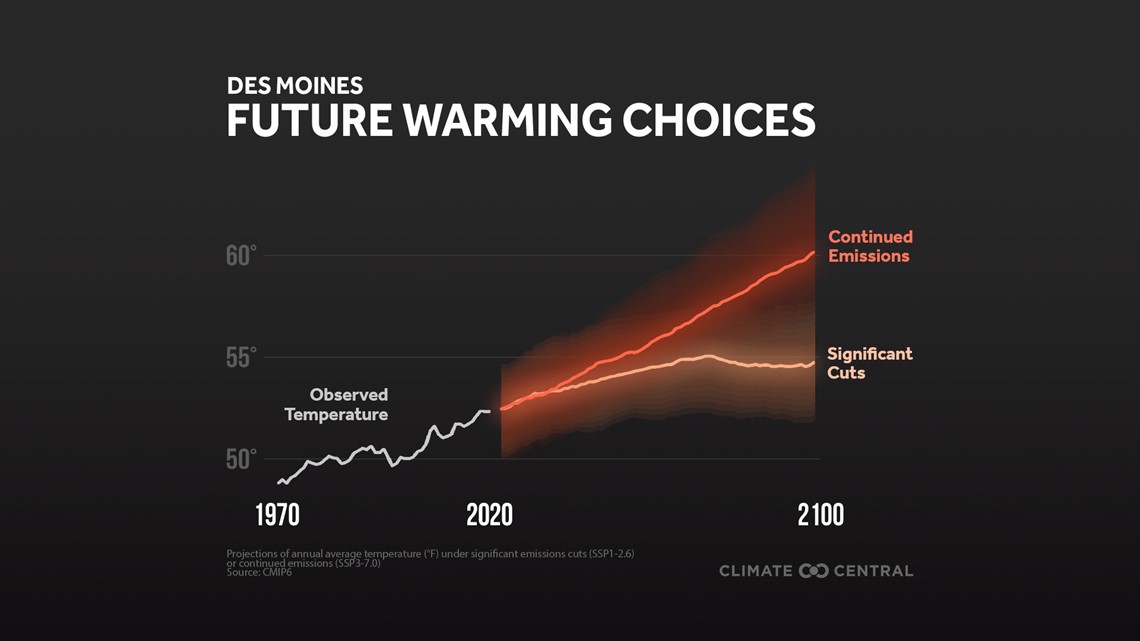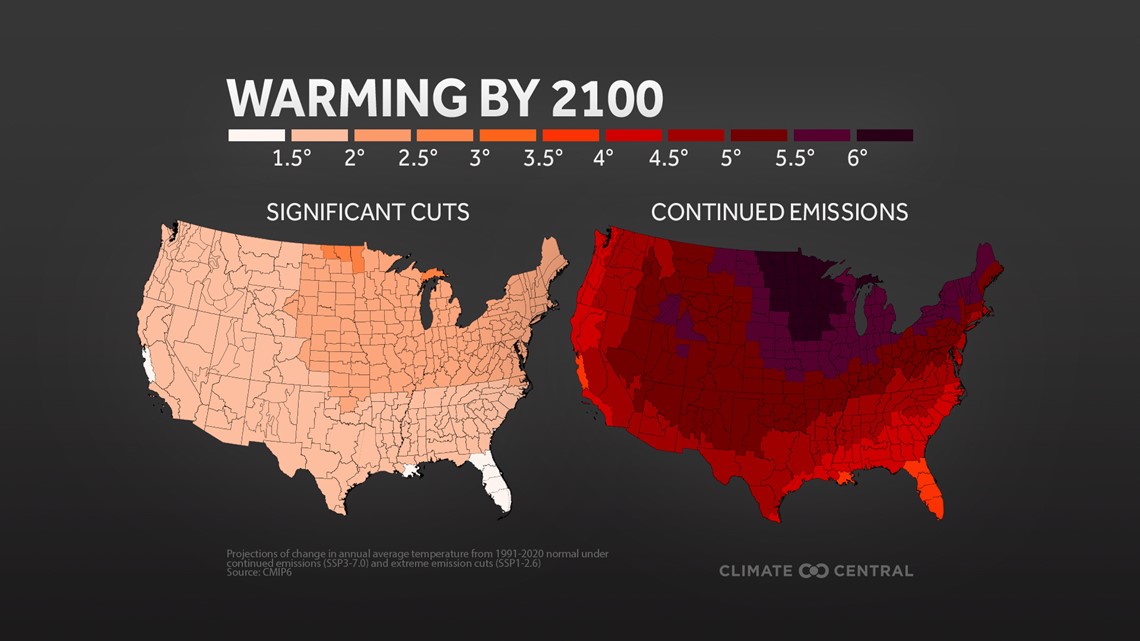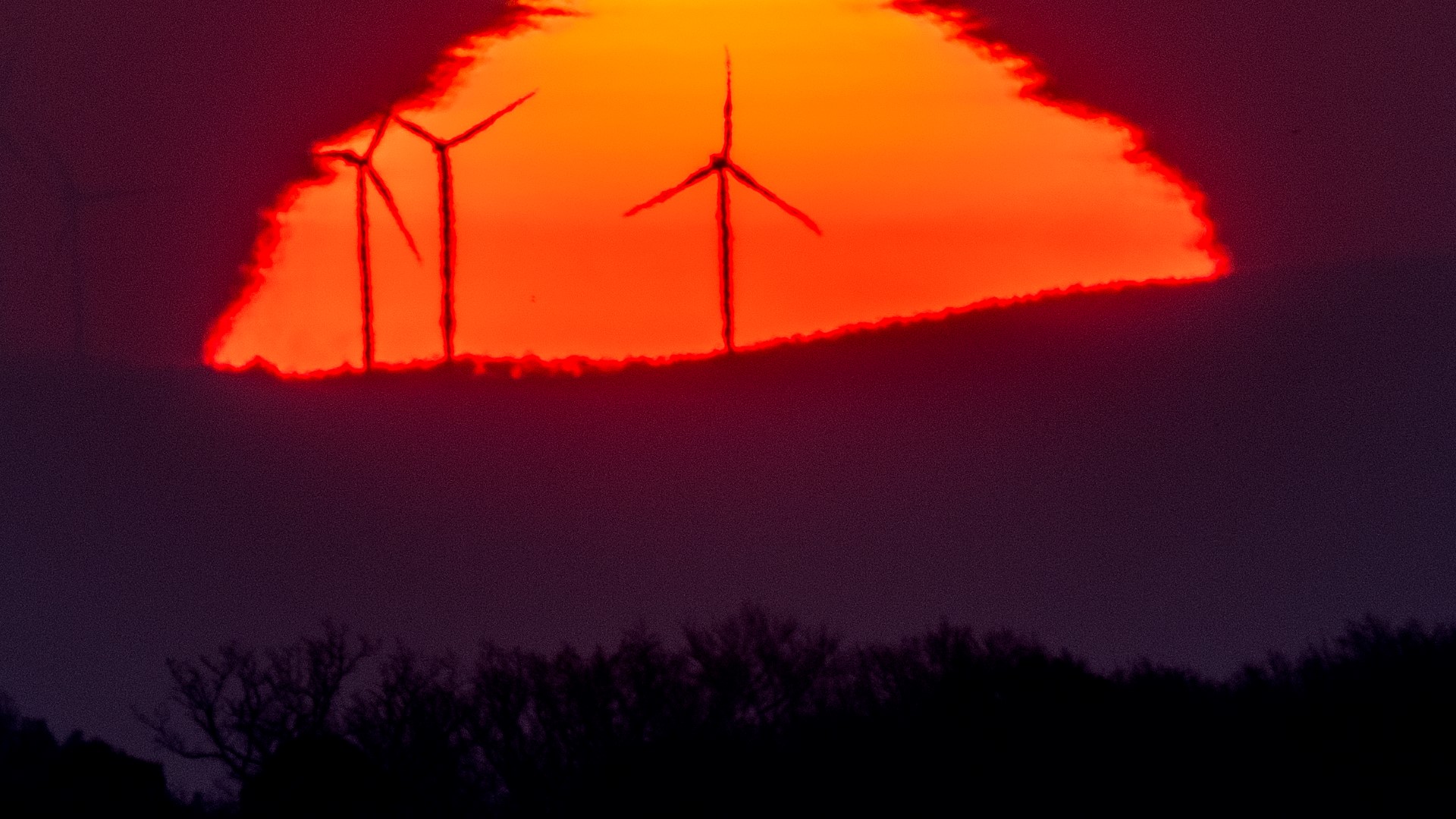DES MOINES, Iowa — On Monday, the Intergovernmental Panel on Climate Change released the final part of their sixth assessment on the impact human greenhouse gas emissions have had on Earth's climate.
The 1.5 degree Celsius increase in worldwide temperature change may well be out of reach in the next few years. That benchmark was established with the 2015 Paris Climate Agreement.
The goal was to keep global warming well below 2 degrees this century, but ideally no more than 1.5 degrees.
But temperatures have already risen by 1.1 degrees since the pre-industrial era. In order to stay at or below 1.5 degrees, greenhouse gas emissions must peak before 2025 at the latest.
Methane also must be reduced by 34% by 2030. It has a potency 25 times the effect of carbon dioxide in trapping heat in the atmosphere.
Emissions in 2019 were about 12% higher than in 2010 and 54% higher than in 1990, according to the report's co-chair, UK Professor James Skea.

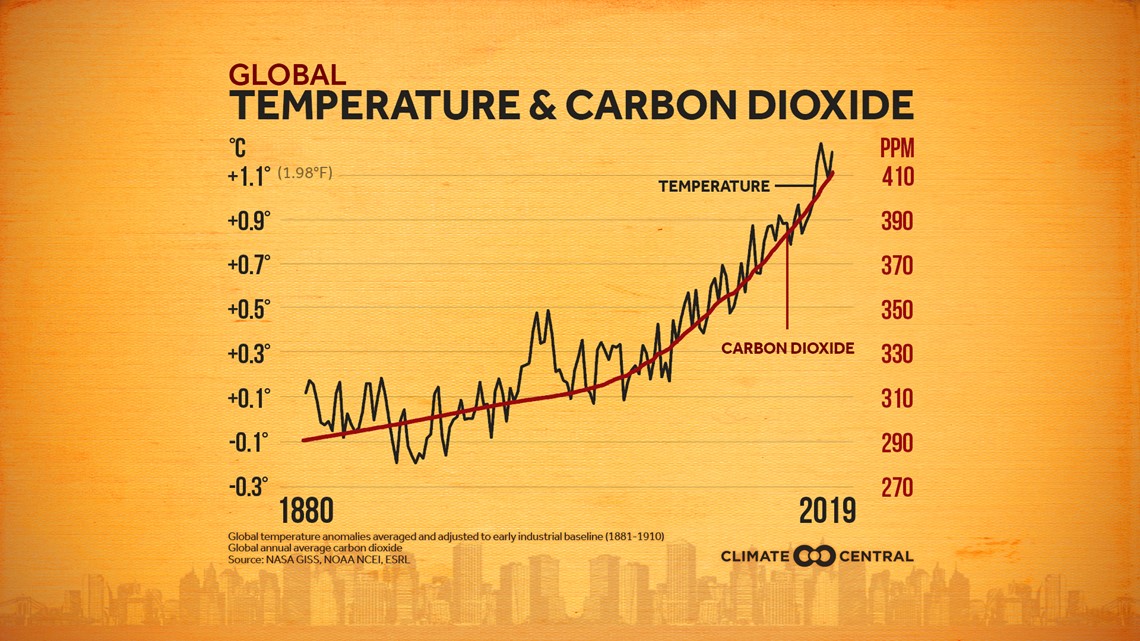

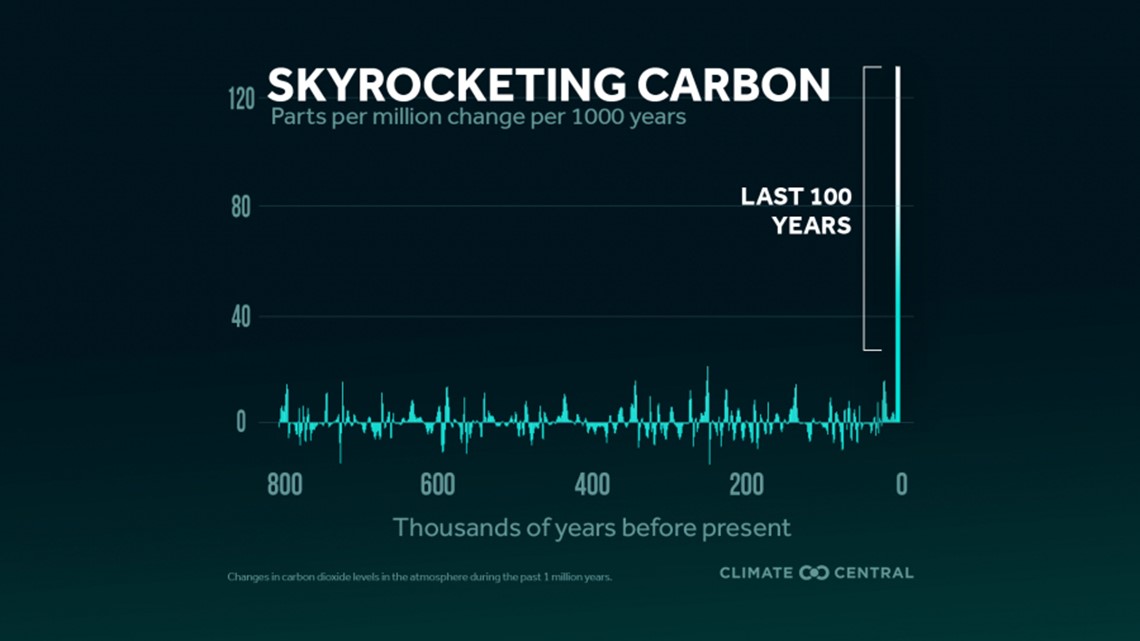
There is some good news, though.
The rate of emissions has declined since 2010, although it does continue to rise. Sustainable energy sources are much cheaper and easier to come by now, as compared to a decade ago.
"Solar is down over 50 percent, and onshore wind, like what we have so much of here in Iowa has dropped 85 percent," said Dr. Brian Campbell, executive director of the Iowa Environment Council.
Fossil fuels have brought plenty of benefits since The Reconstruction in the 19th century, but the focus must now shift.
"Our country can now live with a huge benefit of making use of fossil fuels. The only issue is now that we benefited, we have to move beyond that to something that is more sustainable," Iowa State University professor Dr. Bill Gutowski, who authored the first part of the sixth assessment, said.
Emissions must be cut down to avoid what could be a runaway train of warmth and climate disaster.
The main message from climate scientists is one of unity.
"The old saying is 'it takes a village'. In this case, it really does take everyone working together and recognizing that everybody does have something to bring to the table and that we all have to work together as cooperatively as possible," Gutowski added.

